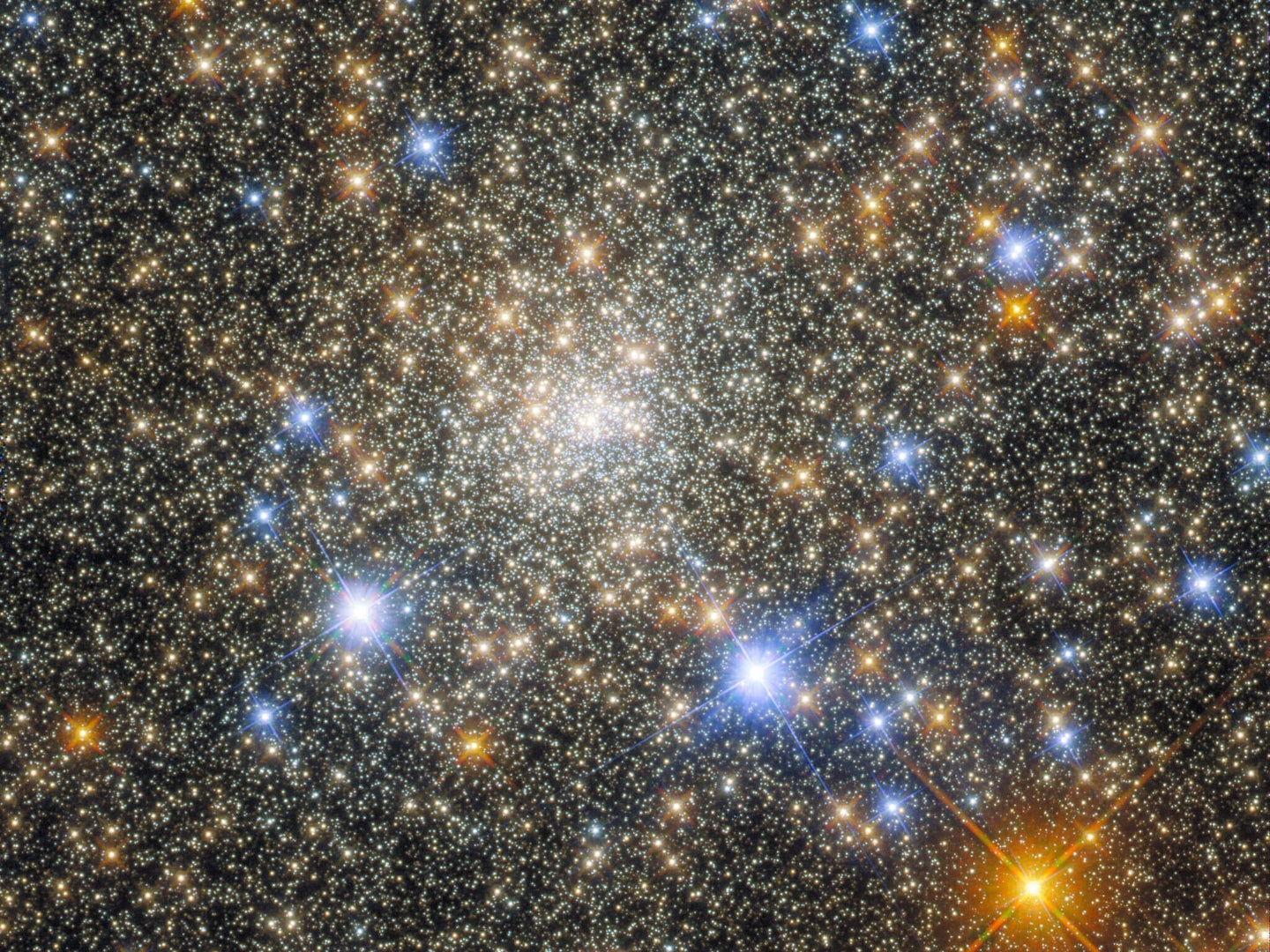Hubble dazzles with a new image of a globular cluster
Located in the Scorpio constellation, the cluster, known as Terzan 2, was captured by the telescope’s Wide Field Camera 3.

With all of the hullabaloo about the James Webb Space Telescope (JWST), the Hubble Telescope is feeling a little lost in the fray. But a recent image shared by the European Space Agency (ESA) and NASA shows that Hubble still has the chops to produce some seriously stunning results. The image depicts an otherworldly globular cluster.
Related: Hubble’s largest-ever image will help researchers discover galaxies far far away
What’s in the Hubble globular cluster image?
This globular cluster, which goes by the name Terzan 2, is located in the Scorpio constellation.
“Globular clusters are stable, tightly gravitationally bound clusters of tens of thousands to millions of stars found in a wide variety of galaxies,” NASA explains. The clusters owe their spherical shapes to “intense gravitational attraction” between stars.
To create the image, Hubble’s Wide Field Camera 3 was used. Though the telescope is equipped with just a single eight-foot primary mirror, multiple instruments are able to use it simultaneously, including Wide Field Camera 3. As light hits the primary mirror, it is deflected to smaller mirrors used by individual instruments.
Related: Hubble photographs the most distant star ever found
Hubble is working as hard as ever
Of course, if you keep up with space news around here, you know that despite the launch of its fancy new relative, Hubble is still capable of churning out beautiful images and plenty of useful data. One of our favorites is this composite photo of nearly every picture Hubble has ever made.
Shortly before the JWST launch, Hubble also produced the largest-ever infrared image, which shows galaxies stretching back 10 billion years. And even though the JWST’s very first images go back 3 billion years further, Hubble’s results are not too shabby for a telescope pushing 31-years-old.
So, while we’re excited to see the new far reaches of the galaxy through the JWST, Hubble is still there proving its discoveries are far from over.
